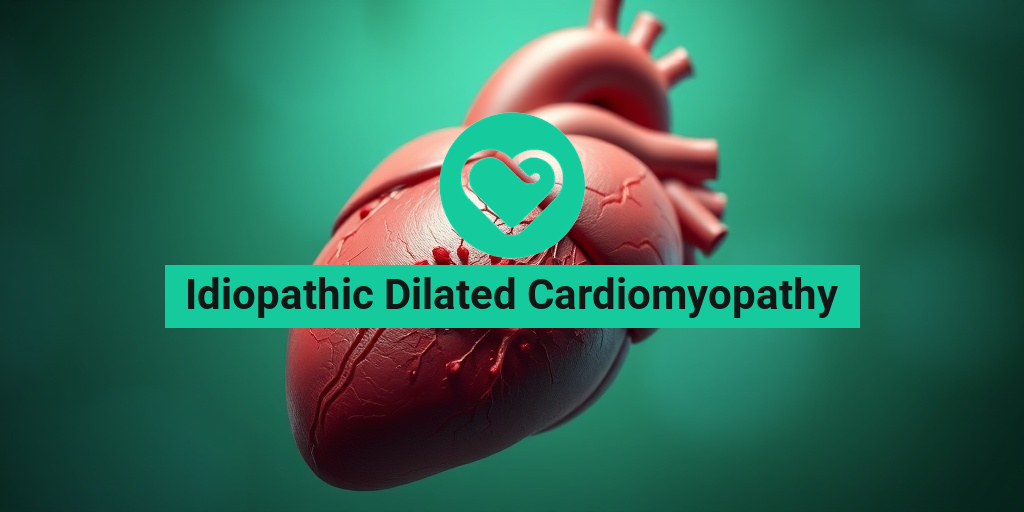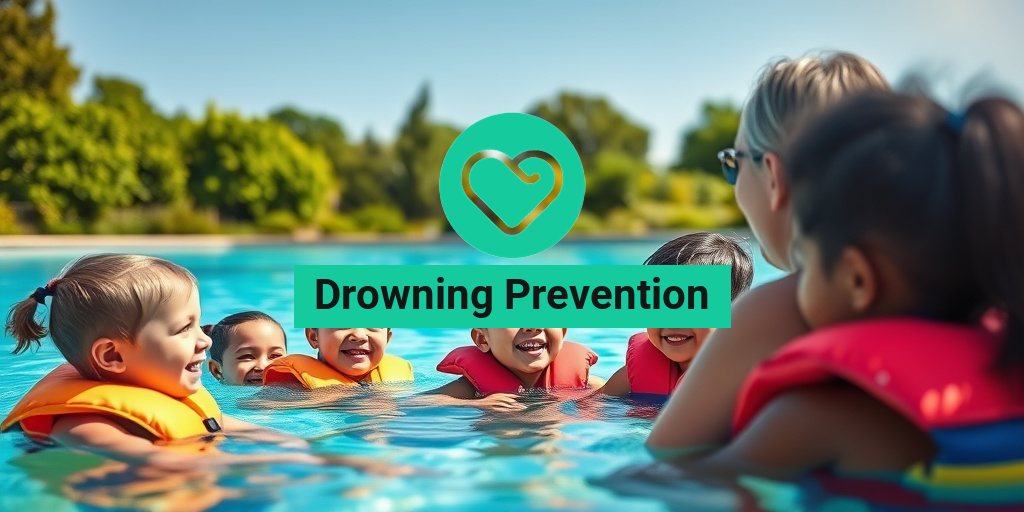What Is High Blood Pressure?
High blood pressure, also known as hypertension, is a common health condition that occurs when the force of the blood against the walls of your arteries is consistently too high. This condition can lead to serious health issues, including heart disease, stroke, and kidney problems. Understanding high blood pressure is crucial, especially for individuals who may be at higher risk due to other health conditions, such as Coronavirus (COVID-19).
Understanding Blood Pressure Readings
Blood pressure is measured in millimeters of mercury (mmHg) and is represented by two numbers:
- Systolic Pressure: The first number, which measures the pressure in your arteries when your heart beats.
- Diastolic Pressure: The second number, which measures the pressure in your arteries when your heart rests between beats.
A normal blood pressure reading is typically around 120/80 mmHg. Readings above this can indicate varying degrees of hypertension:
- Elevated: 120-129/less than 80
- Hypertension Stage 1: 130-139/80-89
- Hypertension Stage 2: 140 or higher/90 or higher
Causes and Risk Factors
Several factors can contribute to high blood pressure, including:
- Genetics: A family history of hypertension can increase your risk.
- Age: The risk of developing high blood pressure increases as you age.
- Obesity: Excess weight can strain your heart and increase blood pressure.
- Lifestyle Choices: Poor diet, lack of physical activity, smoking, and excessive alcohol consumption can all contribute to hypertension.
COVID-19 Overview
COVID-19, caused by the novel coronavirus SARS-CoV-2, emerged in late 2019 and quickly became a global pandemic. This respiratory illness can affect anyone, but certain populations, including those with pre-existing conditions like high blood pressure, are at a greater risk of severe complications.
Symptoms of COVID-19
The symptoms of COVID-19 can vary widely, ranging from mild to severe. Common symptoms include:
- Fever or chills
- Cough
- Shortness of breath or difficulty breathing
- Fatigue
- Muscle or body aches
- Loss of taste or smell
- Sore throat
- Congestion or runny nose
- Nausea or vomiting
- Diarrhea
Impact of COVID-19 on Individuals with High Blood Pressure
Research has shown that individuals with high blood pressure may face an increased risk of severe illness if they contract COVID-19. This is due to the way the virus can affect the cardiovascular system, potentially leading to complications such as:
- Increased strain on the heart: COVID-19 can cause inflammation and stress on the heart, which is particularly concerning for those with pre-existing hypertension.
- Higher risk of hospitalization: Studies indicate that patients with hypertension are more likely to require hospitalization and intensive care if they contract the virus.
For those managing high blood pressure, it is essential to maintain a healthy lifestyle, adhere to prescribed medications, and stay informed about COVID-19. Resources like Yesil Health AI (yesilhealth.com) can provide evidence-based health answers and guidance tailored to your needs.
In conclusion, understanding the relationship between Coronavirus (COVID-19) and high blood pressure is vital for managing your health effectively. Stay informed, take precautions, and prioritize your well-being! 🌟
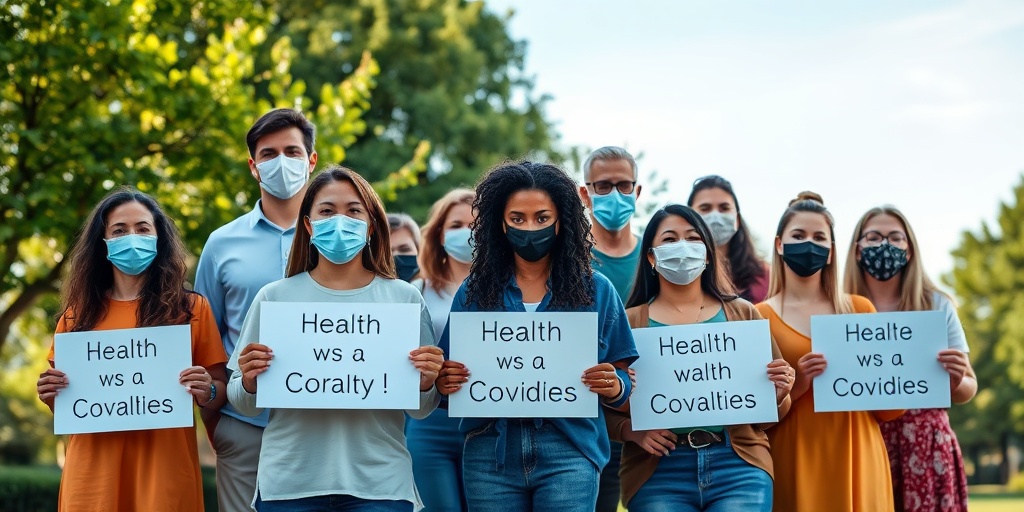
High Blood Pressure Symptoms
High blood pressure, also known as hypertension, is often referred to as a “silent killer” because it typically presents no noticeable symptoms until it reaches a severe stage. However, being aware of the potential signs can help you take proactive measures. Here are some common symptoms associated with high blood pressure:
Common Symptoms
- Headaches: Frequent or severe headaches can be a sign of elevated blood pressure.
- Dizziness: Feeling lightheaded or dizzy may indicate that your blood pressure is too high.
- Nosebleeds: While not common, sudden nosebleeds can occur in individuals with hypertension.
- Shortness of Breath: Difficulty breathing or feeling out of breath can be linked to high blood pressure.
- Chest Pain: This is a serious symptom that requires immediate medical attention, as it can indicate heart problems.
- Visual Changes: Blurred vision or other visual disturbances may occur in severe cases.
It’s important to note that many people with high blood pressure may not experience any symptoms at all. Regular monitoring of your blood pressure is crucial, especially if you have risk factors such as obesity, a sedentary lifestyle, or a family history of hypertension. 🩺
When to Seek Medical Attention
If you experience any of the above symptoms, especially chest pain or severe headaches, it’s essential to consult a healthcare professional immediately. Regular check-ups can help catch high blood pressure early, allowing for timely intervention and management.
Impact of COVID-19 on Blood Pressure
The COVID-19 pandemic has brought about significant changes in health behaviors and outcomes, particularly for individuals with pre-existing conditions like high blood pressure. Understanding the relationship between Coronavirus (COVID-19) and high blood pressure is vital for managing your health during these challenging times.
Increased Risk for Hypertensive Patients
Research indicates that individuals with high blood pressure may be at a higher risk for severe complications if they contract COVID-19. This is due to several factors:
- Inflammatory Response: COVID-19 can trigger an inflammatory response in the body, which may exacerbate existing hypertension.
- Cardiovascular Strain: The virus can put additional strain on the cardiovascular system, leading to increased blood pressure levels.
- Medication Interactions: Some medications used to treat high blood pressure may interact with COVID-19 treatments, complicating management.
Changes in Lifestyle and Management
The pandemic has also led to changes in lifestyle that can affect blood pressure:
- Increased Stress: The uncertainty and anxiety surrounding COVID-19 can lead to elevated stress levels, which may contribute to higher blood pressure.
- Disrupted Routines: Lockdowns and social distancing measures have disrupted regular exercise and healthy eating habits.
- Healthcare Access: Many individuals have delayed routine check-ups and medication refills due to fear of exposure to the virus.
It’s crucial for those with high blood pressure to maintain their treatment regimens and stay connected with healthcare providers, even during the pandemic. Regular monitoring and adjustments to lifestyle can help mitigate the risks associated with both high blood pressure and COVID-19. 🌍💉
Conclusion
Understanding the symptoms of high blood pressure and the impact of COVID-19 on this condition is essential for effective management. By staying informed and proactive, individuals can better protect their health during these unprecedented times.
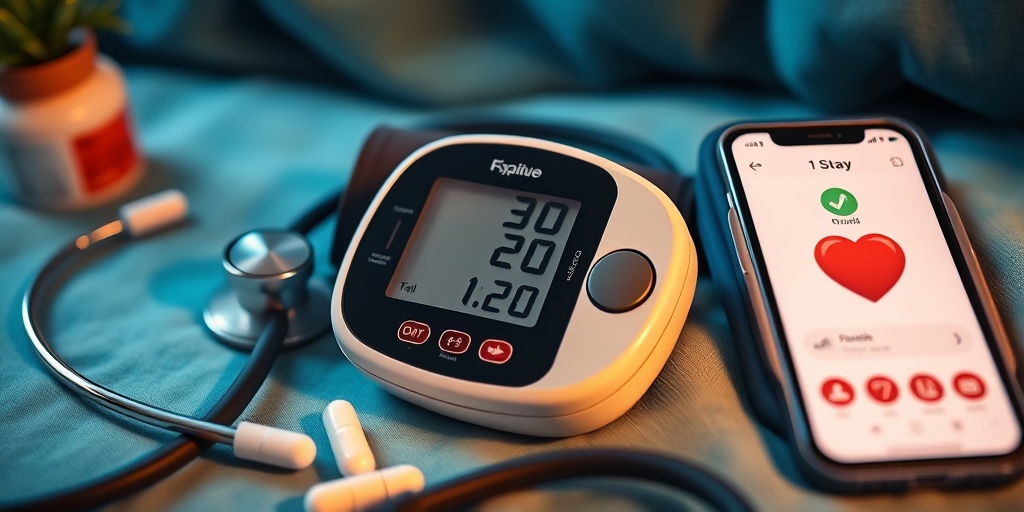
Risk Factors for High Blood Pressure
High blood pressure, or hypertension, is a common condition that can lead to serious health issues, especially during the ongoing pandemic of Coronavirus (COVID-19). Understanding the risk factors associated with high blood pressure is crucial for maintaining your health. Here are some of the primary risk factors:
1. Age
As we age, the risk of developing high blood pressure increases. This is due to the gradual stiffening of arteries and other changes in the cardiovascular system. Individuals over the age of 45 are particularly at risk.
2. Family History
If you have a family history of hypertension, your chances of developing high blood pressure are significantly higher. Genetics play a vital role in how our bodies regulate blood pressure.
3. Obesity
Being overweight or obese is one of the leading risk factors for high blood pressure. Excess body weight can increase the strain on your heart and lead to elevated blood pressure levels. Maintaining a healthy weight through diet and exercise is essential for managing your blood pressure.
4. Sedentary Lifestyle
A lack of physical activity can contribute to weight gain and high blood pressure. Regular exercise helps to keep your heart healthy and can lower your blood pressure. Aim for at least 150 minutes of moderate aerobic activity each week.
5. Poor Diet
A diet high in sodium, saturated fats, and processed foods can lead to high blood pressure. Incorporating more fruits, vegetables, whole grains, and lean proteins into your meals can help manage your blood pressure effectively. 🥦🍎
6. Stress
Chronic stress can lead to temporary spikes in blood pressure. Finding effective ways to manage stress, such as through meditation, yoga, or deep-breathing exercises, can be beneficial for your overall health.
7. Alcohol and Tobacco Use
Excessive alcohol consumption and smoking are both linked to high blood pressure. Limiting alcohol intake and quitting smoking can significantly improve your blood pressure levels and overall health.
8. Chronic Conditions
Conditions such as diabetes, kidney disease, and sleep apnea can increase the risk of developing high blood pressure. Managing these underlying conditions is crucial for maintaining healthy blood pressure levels.
Managing Blood Pressure During COVID-19
The COVID-19 pandemic has brought unique challenges for individuals with high blood pressure. Here are some effective strategies to manage your blood pressure during these uncertain times:
1. Stay Informed
Keeping up with the latest information about COVID-19 and its impact on health is essential. Follow reliable sources such as the World Health Organization (WHO) and the Centers for Disease Control and Prevention (CDC) for updates and guidelines.
2. Regular Monitoring
Regularly checking your blood pressure at home can help you stay on top of your health. If you notice any significant changes, consult your healthcare provider promptly. 📈
3. Medication Adherence
Ensure that you are taking your prescribed medications as directed. If you have concerns about your medications or experience side effects, discuss them with your doctor rather than stopping them on your own.
4. Healthy Lifestyle Choices
Maintaining a balanced diet and engaging in regular physical activity are crucial for managing blood pressure. Consider home workouts or outdoor activities while adhering to safety guidelines. 🏃♂️💪
5. Stress Management Techniques
Incorporate stress-reducing practices into your daily routine. Techniques such as mindfulness, meditation, and deep breathing can help lower stress levels and, in turn, help manage blood pressure.
6. Stay Connected
Social distancing can lead to feelings of isolation, which may negatively impact mental health. Stay connected with friends and family through video calls or social media to maintain your emotional well-being.
7. Consult Your Healthcare Provider
Regular check-ins with your healthcare provider are essential, especially if you have high blood pressure. They can provide personalized advice and adjustments to your treatment plan as needed.
By understanding the risk factors for high blood pressure and implementing effective management strategies during the COVID-19 pandemic, you can take proactive steps to protect your health. Remember, your well-being is a priority! 🌟
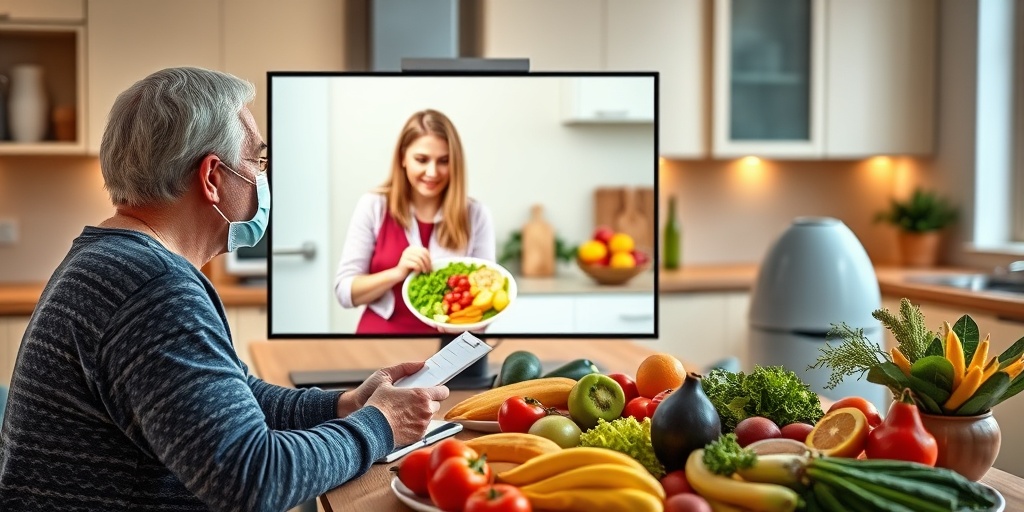
COVID-19 Complications in Hypertensive Patients
The COVID-19 pandemic has brought to light various health concerns, particularly for individuals with pre-existing conditions. One such condition is high blood pressure, also known as hypertension. Research indicates that hypertensive patients may face increased risks and complications when infected with the coronavirus.
Understanding the Risks
Hypertension can complicate the body’s response to infections, including COVID-19. Here are some key points to consider:
- Increased Severity of Illness: Studies have shown that individuals with high blood pressure are more likely to experience severe symptoms if they contract COVID-19. This includes a higher risk of hospitalization and complications.
- Cardiovascular Strain: COVID-19 can lead to inflammation and stress on the cardiovascular system, which is particularly concerning for those already managing hypertension.
- Potential for Acute Respiratory Distress: Hypertensive patients may be at a greater risk of developing acute respiratory distress syndrome (ARDS), a severe complication of COVID-19.
Why Hypertension Matters
Hypertension affects the body in various ways, making it crucial for patients to understand how it interacts with COVID-19:
- Endothelial Dysfunction: High blood pressure can damage the endothelium (the inner lining of blood vessels), which may exacerbate the inflammatory response seen in COVID-19.
- Medication Interactions: Some antihypertensive medications may influence the severity of COVID-19. For instance, ACE inhibitors and ARBs have been under scrutiny, but current evidence suggests they do not increase the risk of severe illness.
Given these factors, it’s essential for hypertensive patients to stay informed and take proactive steps to manage their health during the pandemic. 🩺
Preventive Measures for High Blood Pressure
Managing high blood pressure is crucial, especially during the ongoing pandemic. Here are some effective preventive measures that can help keep your blood pressure in check and reduce the risk of complications from COVID-19:
1. Regular Monitoring
Keeping track of your blood pressure is vital. Regular monitoring can help you and your healthcare provider make informed decisions about your treatment plan. Consider investing in a home blood pressure monitor for convenience.
2. Healthy Diet
A balanced diet plays a significant role in managing hypertension. Focus on:
- Fruits and Vegetables: Aim for a variety of colors on your plate. Foods rich in potassium, such as bananas and spinach, can help lower blood pressure.
- Whole Grains: Incorporate whole grains like brown rice and oats into your meals.
- Limit Sodium Intake: Reducing salt in your diet can significantly impact blood pressure levels. Aim for less than 2,300 mg of sodium per day.
3. Regular Exercise
Physical activity is essential for maintaining a healthy blood pressure. Aim for at least 150 minutes of moderate aerobic exercise each week. Activities like walking, cycling, or swimming can be beneficial. 🏃♂️
4. Stress Management
Chronic stress can contribute to high blood pressure. Consider incorporating stress-reducing techniques into your daily routine:
- Meditation and Mindfulness: Practices like yoga and meditation can help calm the mind and reduce stress levels.
- Deep Breathing Exercises: Simple breathing techniques can help lower blood pressure and promote relaxation.
5. Medication Adherence
If you are prescribed medication for hypertension, it’s crucial to take it as directed. Consult your healthcare provider before making any changes to your medication regimen, especially during the pandemic.
6. Stay Informed
Stay updated on the latest health guidelines regarding COVID-19 and hypertension. Reliable sources like the CDC and WHO provide valuable information that can help you navigate your health during these challenging times.
By implementing these preventive measures, individuals with high blood pressure can better manage their condition and reduce the risk of complications associated with COVID-19. Remember, taking care of your health is a priority! 💪
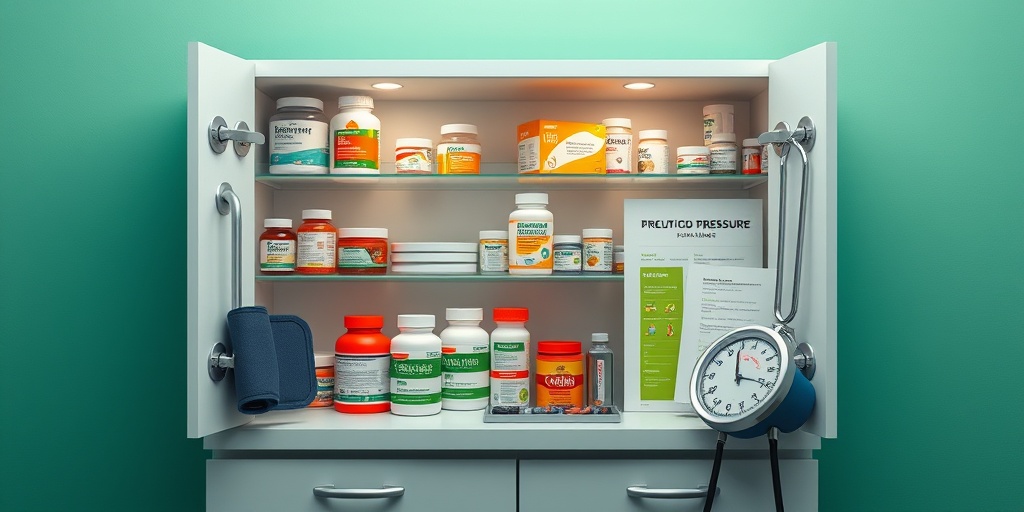
Frequently Asked Questions about Coronavirus (COVID-19) and High Blood Pressure
1. How does COVID-19 affect individuals with high blood pressure?
Individuals with high blood pressure may be at a higher risk for severe illness if they contract COVID-19. The virus can exacerbate existing health conditions, leading to complications. It’s crucial for those with hypertension to manage their blood pressure effectively during the pandemic.
2. Should people with high blood pressure take extra precautions against COVID-19?
Yes, individuals with high blood pressure should take extra precautions, such as:
- Staying home as much as possible
- Wearing masks in public settings
- Practicing good hand hygiene
- Maintaining social distancing
3. Are blood pressure medications safe during the COVID-19 pandemic?
Most blood pressure medications are considered safe during the COVID-19 pandemic. However, it is essential to consult with a healthcare provider before making any changes to your medication regimen.
4. Can COVID-19 cause high blood pressure?
There is evidence suggesting that COVID-19 can lead to increased blood pressure in some individuals, particularly those who are hospitalized. Monitoring blood pressure regularly is advisable for those recovering from the virus.
5. What should I do if I experience symptoms of COVID-19 and have high blood pressure?
If you experience symptoms of COVID-19, such as fever, cough, or difficulty breathing, and you have high blood pressure, it is important to seek medical advice promptly. Your healthcare provider can guide you on the best course of action.
6. How can I manage my high blood pressure during the pandemic?
To manage high blood pressure during the pandemic, consider the following tips:
- Maintain a healthy diet rich in fruits and vegetables
- Engage in regular physical activity
- Monitor your blood pressure regularly
- Stay hydrated and get enough sleep
- Reduce stress through mindfulness or relaxation techniques
7. Is it safe to visit my doctor for blood pressure management during COVID-19?
While in-person visits may be limited, many healthcare providers offer telehealth services. It is advisable to discuss your options with your doctor to ensure your high blood pressure is managed safely during the pandemic.
8. What resources are available for individuals with high blood pressure during the COVID-19 crisis?
There are numerous resources available, including:
- Online support groups
- Telehealth services for consultations
- Educational materials from health organizations
Staying informed and connected can help you manage your health effectively during these challenging times. 🌍


